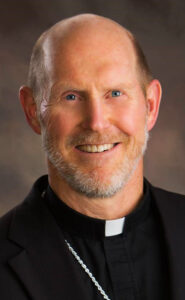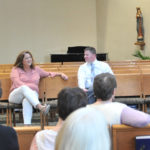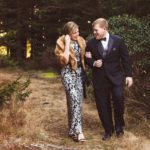By Barb Arland-Fye
The Catholic Messenger
Immigration and racism, two topics that evoke debate at the dinner table and in the public square, generated considerable discussion during the U.S. bishops’ fall assembly, said Bishop Thomas Zinkula.

The bishops were encouraged during the Nov. 13-14 fall assembly in Baltimore to raise the level of discussion on racism and immigration, beginning in the church pews of their dioceses. In an interview with The Catholic Messenger, Bishop Zinkula identified a variety of actions Catholics can take. Lobby local, state and national elected officials; provide adult faith formation, including articles in The Messenger; talk about racism and immigration in parishes, Catholic schools and from the pulpit, he said. “We need to be careful in the words we use, in terms of being respectful. We need to get to know people better; people of other religions, ethnicities, cultures and countries. We need to tell stories (of refugees and immigrants, for example). That makes a big difference.”
He acknowledged the challenge of addressing issues in a society deeply divided and entrenched in their views. “Prudential judgment,” a term that came up at the USCCB fall meeting, is of concern because some people see it as a way to disagree with the bishops on an issue not specifically addressed in church teaching.
“The notion of prudential judgment isn’t a blank check that allows Catholics to do as they will,” Bishop Zinkula said. “Prudential judgment doesn’t mean that there is no right answer. It might be hard to discern the right answer, but it doesn’t mean there isn’t a right answer. We, as Catholics, are obligated to form our consciences in accord with God’s truth. Prudential judgment isn’t meant to be a way to rationalize a political perspective or justify one’s own interest. Nor is it a pretext to ignore church teaching. We must give serious consideration to the church’s teaching on particular issues. We are to put aside any personal motives, including partisan preferences, which may cloud our judgment.”
Bishop Zinkula shared an example from an experience with family members over the Thanksgiving holiday. The bishop was reading in another room when he overheard a discussion, tense but respectful, about gun control. He wasn’t going to get involved, but as the discussion continued, “I looked up on my phone what the bishops have to say about gun control and I found the statement.” He shared that statement with family members. “Everyone appreciated hearing the moral reasoning of the bishops and some learned something new about the topic. We’re Catholic,” the bishop said. “Let’s see what the bishops have to say and start from there.”
Cardinal Daniel DiNardo, the USCCB’s president, noted that many issues of the day — health care, conscience protections, immigration and refugees, abortion, physician-assisted suicide and marriage among them — continue to be hotly debated. “But our role continues to be witnessing to the Gospel.”
Despite the demands of their ministry, papal nuncio Archbishop Christophe Pierre urged the bishops to make time for their prayer life. Bishop Zinkula admits that as a new bishop, “It’s a tough balancing act. I’ve had a lot of assignments over the years which caused change to the patterns, the rhythm of my life. … It’s always hard for me to figure out how to get into a new rhythm of prayer. I talked to my spiritual director about it. I’m praying, but my personal prayer is a little scattered; I haven’t yet found a pattern I would like.” Archbishop Pierre “has got a point. He’s speaking to me!”
Archbishop Pierre also encouraged the bishops to make a strong effort to accompany young people who often question their faith. Bishop Zinkula sees this as an important issue, which he has addressed with the diocese’s new directors of religious education and also with his fellow bishops at the USCCB meeting.
The bishops admitted they were having difficulty choosing from a plethora of resources and materials to make available for young adults. Good, well-prepared catechists may be even more important, some bishops said. Bishop Zinkula felt compelled to share his observations with the bishops from his region.
“Great catechists, great resources, that’s wonderful,” Bishop Zinkula said. “The depth of our intellectual tradition is so important; it has been for me. But what about reaching young people’s hearts? What about prayer?” he asked. “Why don’t we have really good ideas for prayer, for service, for retreats? We need to help young people get to know Jesus, not just about him.”
Parents also need to be on board, and need adult faith formation to help them in their role, the bishop said. But the rest of us have a responsibility as well. “We can’t control whether or when a young person attends Mass, but we can control what happens at Mass and what happens in parishes and how engaged we are.” When a young adult attends Mass, “What do they experience there? Are we full, active, conscious participants? If we are, do we welcome them? That’s what they’re going to come back to.”











